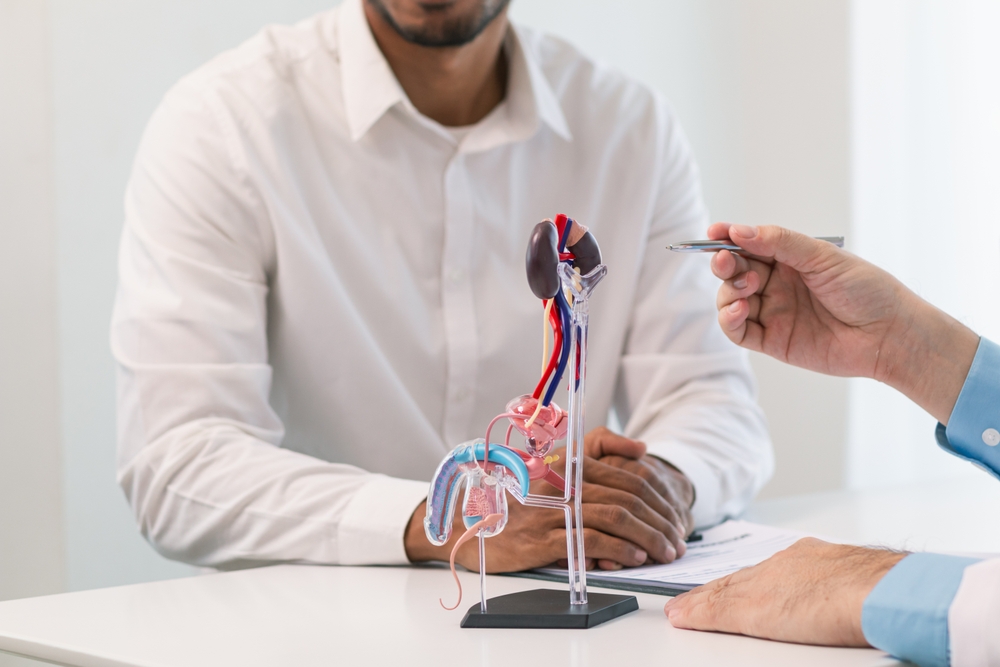Handling The Side Effects of Urologic Cancer Treatments

Urologic cancer encompasses a variety of cancers affecting the urinary system and male reproductive organs. These cancers include bladder cancer, kidney cancer, prostate cancer, and testicular cancer. While treatments for urologic cancers can be highly effective, they often come with a range of side effects that can impact a patient’s quality of life. In this blog, we will explore the common side effects of urologic cancer treatments and offer practical strategies for managing them.
Types of Treatments for Urologic Cancer
The treatment approach for urologic cancer largely depends on the type and stage of cancer, as well as the overall health of the patient. Common treatments include:
- Surgery: Often used to remove tumors or affected organs.
- Radiation Therapy: Targets cancer cells with high-energy radiation.
- Chemotherapy: Uses drugs to kill or slow the growth of cancer cells.
- Hormone Therapy: Alters hormone levels to help control cancer growth.
- Immunotherapy: Boosts the body’s immune system to fight cancer cells.
Each treatment option comes with its own set of potential side effects, which can vary in severity and duration.
Common Side Effects of Urologic Cancer Treatments
Side Effects of Bladder Cancer Treatments
Bladder cancer treatments can lead to a variety of side effects. Understanding these can help patients prepare and manage their symptoms effectively.
1. Urinary Issues
- Frequent Urination: Patients might experience an increased need to urinate.
- Painful Urination: Burning sensations or discomfort while urinating are common.
- Incontinence: Loss of bladder control can occur, affecting daily activities and quality of life.
2. Fatigue
Fatigue is a prevalent side effect of many cancer treatments, including those for bladder cancer. It can range from mild tiredness to severe exhaustion, impacting daily functioning and overall well-being.
3. Nausea and Vomiting
Chemotherapy and certain other treatments may induce nausea and vomiting. While medications can help manage these symptoms, they can still be distressing for patients.
4. Changes in Sexual Function
Treatment for bladder cancer, especially surgery and radiation, can impact sexual function. This might include erectile dysfunction or changes in sexual desire.
Side Effects of Prostate Cancer Treatments
Prostate cancer treatments can have a distinct set of side effects. Here’s a closer look at some of the common issues.
1. Erectile Dysfunction
One of the most challenging side effects for men undergoing prostate cancer treatment is erectile dysfunction. This can result from surgery, radiation, or hormone therapy.
2. Urinary Incontinence
Similar to bladder cancer treatments, prostate cancer treatments can also lead to urinary incontinence. This may affect a patient’s ability to control urination.
3. Hot Flashes
Hormone therapy used in treating prostate cancer often causes hot flashes, which can be uncomfortable and disruptive.
4. Fatigue and Loss of Strength
Patients undergoing treatment for prostate cancer may experience significant fatigue and a general loss of strength, impacting their daily activities.
Side Effects of Kidney Cancer Treatments
Kidney cancer treatments can also produce a range of side effects, including:
1. Kidney Function Impairment
Surgery or radiation can affect kidney function, leading to issues like decreased urine output or altered kidney function tests.
2. Pain
Pain at the treatment site or related to surgical recovery can be a common issue. Pain management strategies may include medications and physical therapy.
3. Gastrointestinal Issues
Patients may experience nausea, vomiting, or diarrhea, especially if undergoing chemotherapy or targeted therapies.
Side Effects of Testicular Cancer Treatments
Testicular cancer treatments, particularly chemotherapy and radiation, can lead to several side effects:
1. Infertility
Chemotherapy and radiation therapy can impact fertility. Men undergoing these treatments should discuss fertility preservation options with their healthcare provider.
2. Fatigue
Like other cancer treatments, testicular cancer treatments can cause significant fatigue and general weakness.
3. Nausea and Vomiting
Chemotherapy is known for causing nausea and vomiting, which can be managed with medications and dietary adjustments.
Managing Side Effects of Urologic Cancer Treatments
1. Communication with Healthcare Providers
Effective management of side effects begins with open communication with your healthcare team. Discuss any symptoms you experience and work together to develop a plan for managing them. This might include adjusting treatment plans or incorporating supportive therapies.
2. Medications and Therapies
There are various medications and therapies available to manage side effects. For instance:
- Anti-nausea Medications: To combat chemotherapy-induced nausea.
- Pain Relievers: For managing post-surgical or treatment-related pain.
- Hormone Therapy Adjustments: To address issues like hot flashes or sexual dysfunction.
3. Lifestyle and Dietary Adjustments
Making changes to your lifestyle and diet can help alleviate some side effects:
- Hydration: Staying well-hydrated can help with urinary and gastrointestinal issues.
- Balanced Diet: Eating a nutritious diet can support overall health and manage side effects like fatigue.
- Exercise: Gentle exercise can improve energy levels and overall well-being.
4. Psychological Support
Dealing with cancer and its treatments can be emotionally challenging. Seeking support from mental health professionals, support groups, or counseling services can help patients cope with the emotional and psychological impacts of their illness and treatment.
5. Physical Therapy
For issues like urinary incontinence or sexual dysfunction, physical therapy, including pelvic floor exercises, can be beneficial. Consult with a specialized therapist to explore options.
Conclusion
Handling the side effects of urologic cancer treatments requires a comprehensive approach involving medical, lifestyle, and emotional strategies. By understanding the potential side effects and actively managing them with the help of healthcare providers, patients can improve their quality of life and better navigate their cancer journey. Remember, each patient’s experience is unique, so personalized care and support are key to effectively managing these challenges.
 Rohit Kapoor, MD
Rohit Kapoor, MD